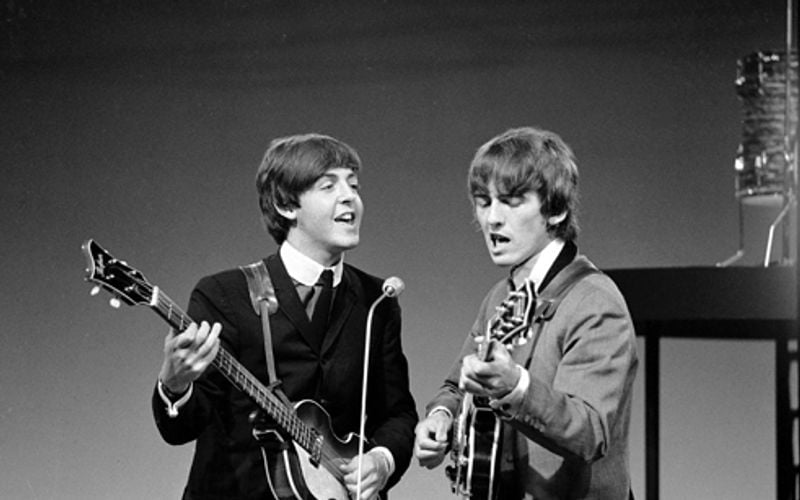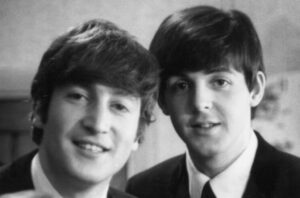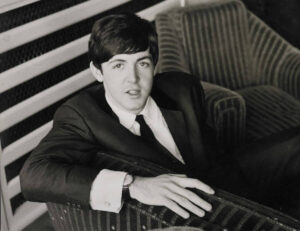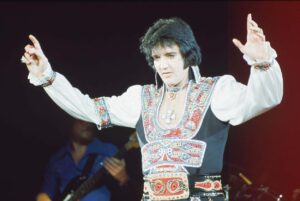In 1969, John Lennon, Paul McCartney, George Harrison and Ringo Starr were in a prison of their own design as The Beatles. Indisputably the biggest band in the world, the group’s desire to expand their reach through record labels, fashion boutiques, art projects, films, and other media began to complicate their lives. To add to the confusion, the man who had handled matters of business early in the band’s career, Brian Epstein, had passed away two years earlier, leaving the band to essentially manage themselves.
The result was a glut of mandatory business meetings within the Apple Records offices. Issues ranged from singles distribution to royalty rates, and the atmosphere alternated between monotonous and contentious. George Harrison was famously averse to these meetings and once skipped out to retreat to his friend Eric Clapton’s garden, where he composed the song ‘Here Comes the Sun’. But it was while he was stuck inside that he made a comment that stuck with Paul McCartney.
The exact comment, and whether Harrison actually said it or not, depends on who you ask and when. McCartney has alternately credited Harrison and dismissed the story as entirely made up. But the legend has it that Harrison said either one or both of the following: “If we ever get out of here”, referring to the long and tedious nature of the meetings, and when pressed that the band could face legal action regarding their finances, he suggested that they become “a band on the run”.
Whatever the actual words happened to be, the feeling was understood: the band felt trapped and isolated, unable to escape the never-ending cycle of business wrangling that was dulling their creative spark and cohesive unity. In an interview with Clash Music in 2010, McCartney summarised it this way: “It was symbolic: ‘If we ever get out of here… All I need is a pint a day…’ (In the Beatles) we’d started off as just kids really, who loved our music and wanted to earn a bob or two so we could get a guitar and get a nice car. It was very simple ambitions at first. But then, you know, as it went on it became business meetings and all of that.”
One of the figures that The Beatles hired to help sort through their convoluted business matters was Allen Klein, a notoriously hard-nosed manager who was known to strong-arm executives when representing his clients. McCartney favoured hiring entertainment lawyers Lee and John Eastman, the brother and father respectively of his new wife, Linda. The Eastman’s and Klein attempted to work together for a short period before the other three Beatles outvoted McCartney and installed Klein as their manager. McCartney would prove prescient when the band engaged in legal action to separate themselves from Klein’s companies in the early ’70s.
By 1973, The Beatles were finally rid of Klein, and McCartney reflected on the laborious meetings that took up so much unnecessary time. It was then that he remembered Harrison’s comment.
“It’s just a good flow of words. I really don’t analyse stuff, and if I do I kind of remember what it meant about three months later, just lying in bed one night,” McCartney later explained in the book Paul McCartney In His Own Words. “It started off with ‘If I ever get out of here.’ That came from a remark George made at one of the Apple meetings. He was saving that we were all prisoners in some way, some kind of remark like that. ‘If we ever get out of here,’ the prison bit, and I thought that would be a nice way to start an album.”
That year was also notable for McCartney’s run-ins with the law regarding his marijuana usage. He began to think about wild-west inspired American bands like Eagels and The Byrds and found a similar ethos in his desire to embrace freedom.
The idea of escapism was fresh on McCartney’s mind, and he began to formulate a loose narrative in his head: criminals, prison, fights, and eventual liberation. He decided to make it a mini-medley, similar to his previous song ‘Uncle Albert/Admiral Halsey,” and started to put the pieces together. The result would eventually become the title track for his next album with his new band Wings: Band on the Run.



